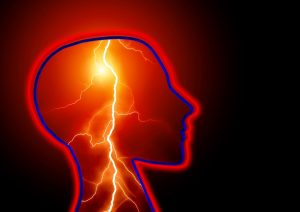 If you had heart disease risk factors, such as high blood pressure, before your first stroke, your risk of suffering subsequent strokes and dementia up to five years later may be higher, according to new research in the American Heart Association’s journal Stroke.
If you had heart disease risk factors, such as high blood pressure, before your first stroke, your risk of suffering subsequent strokes and dementia up to five years later may be higher, according to new research in the American Heart Association’s journal Stroke.
“We already know that stroke patients have an increased risk of recurrent stroke and dementia. What we didn’t know was whether this increased risk persists for a long time after stroke and whether heart disease risk factors present before the first stroke influenced the risk of recurrent strokes or dementia,” said M. Arfan Ikram, M.D., Ph.D., senior study author and associate professor, department of epidemiology, neurology and radiology, Erasmus University Medical Center in Rotterdam, the Netherlands. “Our study found these risk factors influence future stroke and dementia and the risks persist for an extended period in some patients.”
Researchers studied a group of 1,237 stroke survivors from an existing long-term study and compared them to a stroke-free group of about 5,000 people from the same study.
They found:
- One year after suffering a stroke, survivors retain a high risk of a recurrent stroke or dementia for at least five years.
- After one year, first-time stroke survivors were three times more likely than those who hadn’t suffered a stroke to have a recurrent stroke.
- Stroke survivors were nearly two times more likely to have dementia than those who had not suffered stroke.
- Among the stroke survivors, 39 percent of recurrent strokes and 10 percent of post-stroke dementia cases were attributed to pre-stroke cardiovascular risk factors, including high blood pressure; diabetes; low levels of high-density lipoprotein (HDL – the good cholesterol); smoking; and transient ischemic attack (TIA – mini stroke).
“This study suggests that risk factors that lead to the initial stroke may also predispose patients to worsening mental and physical health after stroke. This also applies to risk of death after stroke. We found in a previous study that 27 percent of all deaths after stroke can be attributed to risk factors already present before stroke,” Ikram said.
Taking good care of your cardiovascular risk factors — even if you have never experienced a stroke — is not only important to prevent the first stroke, but it can go a long way to prevent a second stroke and dementia, he added.
Stroke is the fifth most common cause of death and a leading cause of disability in the United States. The American Heart Association’s Life’s Simple 7 helps people monitor and reduce cardiovascular risk factors that can lead to heart disease and stroke.




